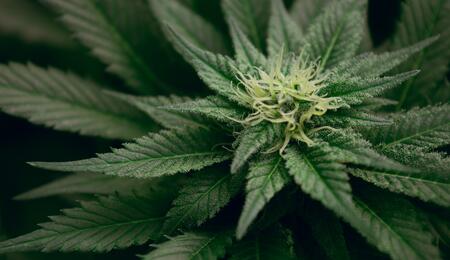Christians Demand: Stop the War on Drugs

The most determined opponents of a cannabis reform often come from conservative religious circles, such as those who regard homosexuality as a curable disease, deny Darwin’s findings, or regard the equal treatment of all sexes as ungodly.
Just recently, Jeff Hunt, a Colorado Christian University educator, wanted to ban the 420 Rally in Denver in its current form. Not due to any illegal activities occurring during the event, but because cannabis itself was a social threat. “We want to reform culture, to make culture good,” Hunt said. “And we see recreational marijuana as a threat to making a good and healthy society.”
Hunt’s negative experience with cannabis dates back to when he tried to complete his homework after smoking herb in the eighth grade, at the young age of approximately 14 years old. “I would smoke marijuana pretty regularly and try to do homework, and I’d forget a paragraph as soon as I’d read it,” he said. Hunt’s experience is a prime example of what happens when cannabis is purchased as an illegal, unregulated substance by an eighth-grade student lacking any cannabis-related education. But even among committed Christians in the U.S., the voices calling for an end to the War on Drugs have grown over the last several years.
Three weeks ago, the conservative televangelist Pat Robertson criticized the decision of U.S. Attorney General Jeff Sessions directing federal prosecutors to impose the harshest penalties the Controlled Substance Act provides. Robertson called the decision absurd. “These people are ‘tough on crime.’ That’s nonsense. Our country is groaning under the weight of incarceration,” he said on Christian Broadcasting Network.
In Europe, church criticism of state drug policy is rare and only gradually being perceived by the public. For example, German evangelical pastor Michael Kleim has denounced the human rights violations in the name of the War on Drugs, as well as the drug policy of the Federal Republic, for many years. Kleim was also decisively involved in setting up the network that published the Berlin Declaration on May 26th, 2017 on the occasion of the Deutsche Evangelische Kirchentag (German Evangelical Churches’ Days) in Berlin.
The “Berlin Declaration” calls for the end of a War on Drugs, one that’s widely recognized as a failure. The declaration emerged as an idea during a Berlin Meeting, where attendees shared their concern about the massive and excessive human rights abuses caused by current drug policies in many countries, specifically in Latin America and Southeast Asia.
The declaration is promoted by the Iglesia Evangélica Protestante de El Salvador (IEPES) within the framework of the 500 years of the Protestant Reformation and in view of the United Nations Political Declaration on International Drug Control in 2019. The appeal was introduced in the BerlinHemp Museum during an event on Drug Policy and Human Rights titled “Christians demand: Stop the War on Drugs. An unconventional contribution to Kirchentag (Churches’ Day).” Organizations, institutions, religious leaders, academics, scientists, specialists, social influencers and activists signed the document to express their commitment to the “reform of the current international model of drug control.”
The Berlin Declaration focuses on the negative consequences of national and international drug policies while calling for harm reduction and more scientific research to combat illegal and large-scale drug trafficking. The Berlin Declaration seeks to connect the adherents of social, academic, scientific, religious, activist, business, law enforcement and political leaders. Any organization, institution, or company with a social purpose can adhere to the declaration as a tool for advocacy at the highest level in favor of civil society.
On the first day of its presentation, the Berlin Declaration garnered support from more than 80 organizations from all five continents: signers include the IDPC (International Drug Policy Consortium), DPA (Drug Policy Alliance), stopthedrugwar.org, Law Enforcement Partnership, German Hemp Association (DHV), Akzept (Germany), several faith communities such as the Anglican Episcopal Church of El Salvador, the Metropolitan Community Church, and dozens of personalities, including Noam Chomsky, the former British Drug Czar David Nutt and Mexican Catholic Priest Alejandro Solalinde. SOURCE: marijuana.com



